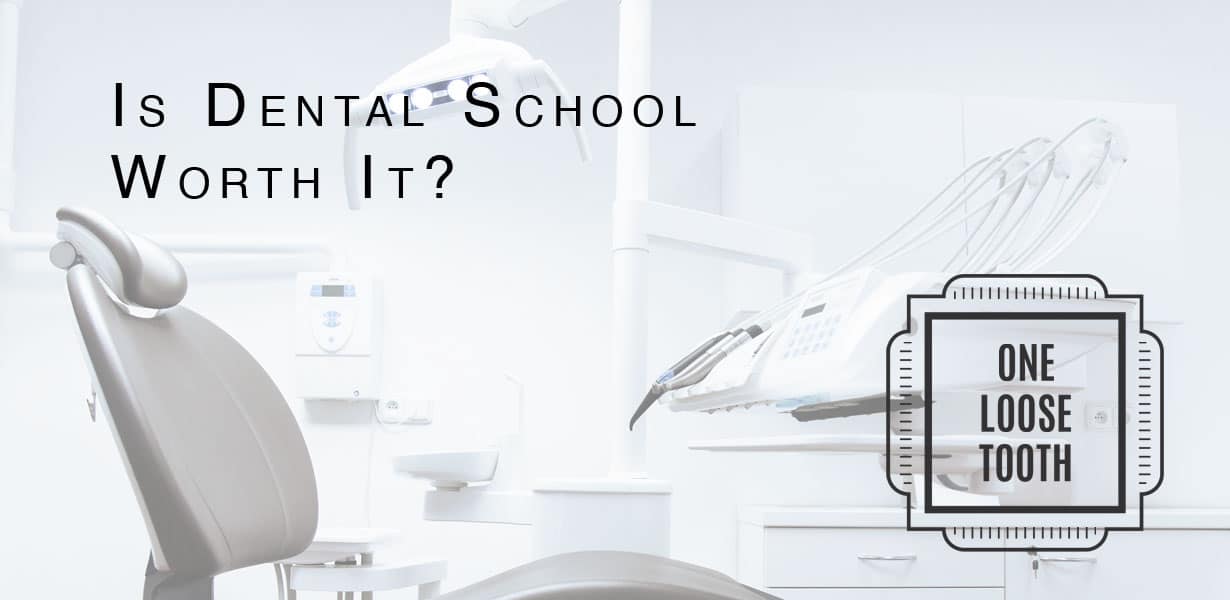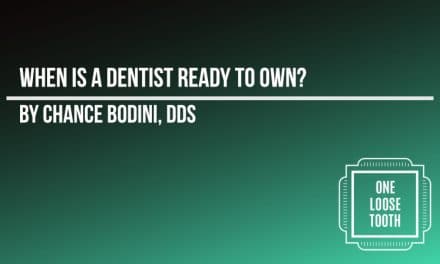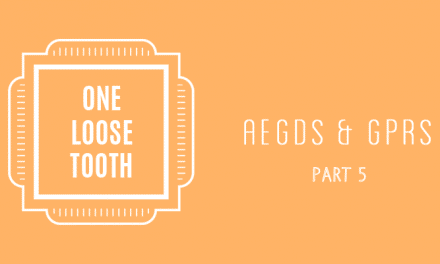After publishing the post Is Dental School Worth $400,000?, a lot of students have emailed me asking, “is dental school worth it?”. Here is what I say:
Dentistry is a great field, but a lot has changed over the last decade. Three things have happened of particular significance: the global financial crisis, increased market penetration of PPO dental insurance, and a rising cost of dental school.
Choosing a career path is challenging and multifactorial and if you make it about money, you’ll never have enough.
With that said, ignoring the economics of an investment as large as dental school would be naive and it sounds like some research lead you to my post regarding the cost of a dental education. In short, I think if you can complete your education (both undergraduate and graduate) with less than $250,000 in student loans, you’ll be fine.
Keep in mind, that graduate loans are unsubsidized so a tuition of $200-250k ends up being closer to 300k when the interest is capitalized after graduating.
If it looks like your debt will approach the mid to high 300k range…I’d pause and remember 300k in student loans ends up being ~ 375k as interest accrues while you are in school. If this will be your situation and you do not have the luxury of financial support from your spouse or family, I would urge you to really take a close look at a scholarship through either the military or National Health Service Corps (NHSC). If neither of those is an option, you can still pursue a career as a general dentist, but understand that your debt to income ratio will likely exceed 2x your adjusted gross income (AGI) for the first 5-10 years of your career and it’s very questionable if one can expect to pay taxes, save for a modest retirement, purchase a reasonable home, and service a student loan that approaches or exceeds 2x AGI.
Dentistry is one of the few industries that is yet to recover from the global financial crisis. Our incomes peaked in 2005. Since then, dentists’ incomes have been on a steady decline with the average general dentist now earning around 175k a year. There are many reasons why, on average, our incomes are declining and I’ll touch on a few.
First, student debt is not a reason for a declining income as the interest that accumulates on the student loan is not tax deductible (you can deduct $2,500 if your AGI is less than 80k if you’re single or 160k if you’re married in 2016).
Second, overhead as a percentage of collections (the amount of money a dental office receives) is rising. Basically, the cost of rent, wages, benefits, materials, equipment, and other expenses related to running a small business and providing competent dentistry are becoming more expensive and most dentists have lost the ability to adjust their fees to compensate (see below).
Third, last I read, 80% of private practices accept at least one PPO. A PPO (preferred provider organization) is a type of insurance plan where a provider discounts her services in exchange for “in-network” status (think of it as agreeing to honor a coupon). The trouble here is that since the 1980s most PPOs have had an annual maximum benefit of less than $2k a year. This is great for insurance companies, but terrible for patients and dentists as insurance coverage has obviously not kept pace with inflation. What’s worse, is that some of the discounts offered by PPO plans are extremely steep – sometimes in the ballpark 40% off the “usual and customary fee” schedule.
A perpetual PPO discount + stagnant insurance benefits + increased overhead + high student debt = dentists have to find more patients, dentists have to see more patients, dentists need to diagnose more treatment (or more expensive treatment), and dentists need to complete more procedures to maintain their current level of income.
The ADA reports that dentists in their first 3-5 years of practice earn an average of 140k a year. I’m of the opinion that it is not wise to take out almost four hundred thousand dollars in student loans for a career with a starting salary of 120k, middle career earnings of 175k, and peak earnings of 200-350k (if you own a successful practice). I think if you really sit down and look at the math to calculate at what age your investment in a dental education would break even with a high school teacher on the low end or mid-level management at a publicly traded company on a more reasonable end, I think many dental students may be surprised.
I hope this email is not too bleak, because I truly enjoy what I do (and there is value worth paying for to enjoy your profession).
At the end of the day, I still think our profession as a whole has a bright future. By that, I mean that the business of fixing teeth looks promising and there are many opportunities for those with an entrepreneurial spirit to a cause great disruption and subsequently earn a great living working with dentists – I just don’t necessarily think that the average general practitioner will be the one to benefit…






A recent article in NPR is relevant to this post: https://whyy.org/segments/dental-school-grads-find-it-hard-to-beat-back-student-debt/